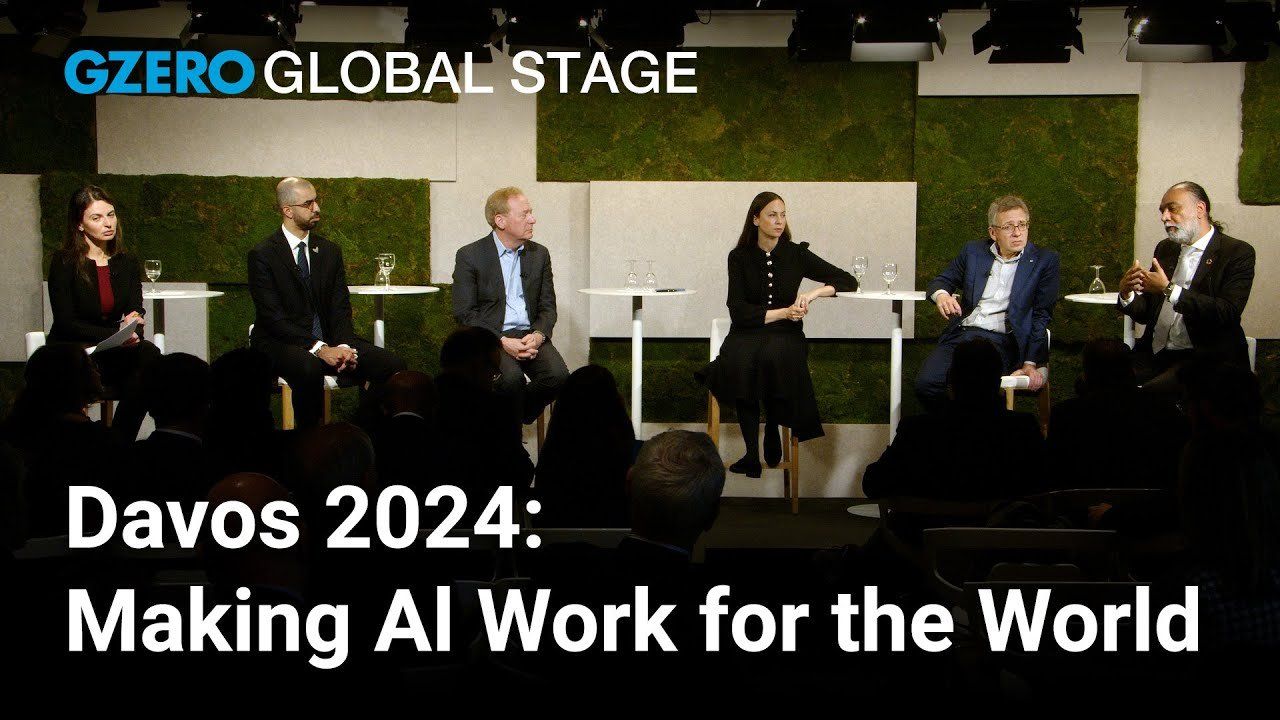
It’s the big topic at Davos: What the heck are we going to do about artificial intelligence? Governments just can’t seem to keep up with the pace of this ever-evolving technology—but with dozens of elections scheduled for 2024, the world has no time to lose.
GZERO and Microsoft brought together folks who are giving the subject a great deal of thought for a Global Stage event on the ground in Switzerland, including Microsoft’s Brad Smith, EU Member of Parliament Eva Maydell, the UAE’s AI Minister Omar Sultan al Olama, the UN Secretary’s special technology envoy Amandeep Singh Gill, and GZERO Founder & President Ian Bremmer, moderated by CNN’s Bianna Golodryga.
The opportunities presented by AI could revolutionize healthcare, education, scientific research, engineering – just about every human activity. But the technology threatens to flood political discourse with disinformation, victimize people through scams or blackmail, and put people out of work. A poll of over 2,500 GZERO readers found a 45% plurality want to see international cooperation to develop a regulatory framework.
The world made great strides in AI regulation in 2023, perhaps most prominently in the European Union’s AI Act. But implementation and enforcement are a different game, and with every passing month, AI gets more powerful and more difficult to rein in.
So where do these luminaries see the path forward? Tune in to our full discussion from the World Economic Forum in Davos, Switzerland, above.
- Davos 2024: AI is having a moment at the World Economic Forum ›
- Be very scared of AI + social media in politics ›
- The AI power paradox: Rules for AI's power ›
- Davos 2024: China, AI & key topics dominating at the World Economic Forum ›
- Accelerating Sustainability with AI: A Playbook ›
- AI's impact on jobs could lead to global unrest, warns AI expert Marietje Schaake - GZERO Media ›